June 10, 2015 | 20th Anniversary Conference
Women Leaders Tackling 21st Century Challenges
![]() 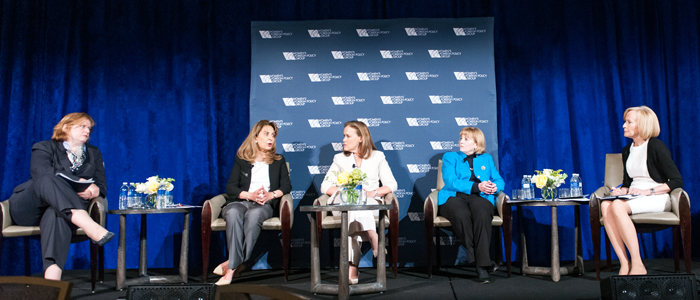
Washington, DC—On June 10, 2015, the Women’s Foreign Policy Group celebrated 20 years of promoting women’s leadership and voices in foreign affairs with a conference entitled Women Leaders Tackling 21st Century Challenges, which included panel speakers and moderators from all sectors of the foreign policy field. The first panel of the conference was on Chaos in the Middle East: What Should the US Do? The discussion was led by Judy Woodruff, co-anchor and managing editor of PBS NewsHour, and featured Ambassador Anne Patterson, Assistant Secretary of State for Near Eastern Affairs; Michèle Flournoy, CEO of the Center for a New American Security and former Under Secretary of Defense for Policy; H.E. Dr. Alia Hatoug Bouran, Ambassador of Jordan to the US; and Anne Richard, Assistant Secretary of State for Population, Refugees, and Migration. The panelists discussed the major challenges facing the Middle East, the ongoing threat of ISIS and the importance of continued US leadership, tensions with Iran, the Syrian conflict and refugee crisis, and how US citizens should think about long-term US interests and involvement in the region.
Woodruff’s first question focused on the greatest current and future challenges for US foreign policy in the Middle East. Assistant Secretary Patterson named sectarian divisions as the major issue, while Flournoy called for the creation of a more comprehensive long-term strategy in the region. Assistant Secretary Richard called attention to the very severe humanitarian crisis in Syria, and Ambassador Bouran named the peace process between Israel and Palestine as the biggest issue for Jordan’s national security.
Much of the discussion related to the threat posed by ISIS, the impact on the region, and how to respond. Patterson discussed the abstract challenges presented by ISIS by underscoring that we “still don’t have a good understanding of the draw of ISIS.” Both Bouran and Patterson mentioned how ISIS has the capability to send out 90,000 messages per day, and in order to diminish their reach online, Flournoy called for a more extreme yet admittedly controversial approach. Stating that “a lot of the technology…that’s being used for this messaging is hosted on US-owned infrastructure,” she described how we need to “develop a set of both moral and legal approaches that allow us to identify what is support for terrorism and take it down” with the use of more sophisticated technology. When asked about free speech concerns, she responded that many of the technology companies inclined to act on this are incredibly concerned with the legality, liability, and morality of such limits on speech. Overall, she stressed that we are much “too passive…in using the instruments that we have at our disposal” in order to thwart online support for terrorism.
Ambassador Bouran continuously emphasized how Jordan and other Gulf states are grateful for both the international response as well as the strategy, knowledge, and expertise of the United States. She stated that as “this is a war within Islam,” that “the Arab and the Muslim world have to take the leadership role” in order to defeat ISIS. She stressed that the majority of Muslims in the region believe that ISIS has perverted and distorted the fundamental principles of Islam to justify their violent, criminal actions. To supplement Bouran’s statements, Patterson discussed the US strategy to defeat ISIS, which involves an international 62-member coalition and a three-year action plan. The administration has decided to prioritize the crisis in Iraq because ISIS presents a very direct threat to the safety and security of our Gulf allies, as well as the increasingly urgent humanitarian situation. While acknowledging Patterson’s points, Flournoy called for even more aggressive steps to combat ISIS. Politically, she stressed the need for increased pressure on the Iraqi government to re-include the Sunnis, as well as the distribution of more resources to the provinces. Militarily, she wants to enable spotters to call in airstrikes, and train local Sunni and Kurdish militias to be reintegrated into Iraqi security forces to increase the effectiveness of the entire military operation.
On the pervasive humanitarian threat presented by ISIS, Richard described the second major displacement crisis in Iraq, as Iraqis have fled the violence and unrest. The Iraqi government right now is “fighting a war and helping its own displaced people at the same time,” which has rendered the delivery of aid nearly impossible to those affected by the conflict. Richard then presented the challenges for Iraq, the US, and the broader international community in the coming months: “how to get donors to do more, how to get the Gulf states to care more, how to get aid to people who have fled a force that has no regard for human rights and for basic human dignity, and how people will be able to go home again.”
Flournoy emphasized the importance of US leadership on these issues by stating that “no country…has the pen in writing the future history of the Middle East,” but that the US is the only country with the expertise and leadership needed to unite the international community to resolve these pressing issues. Patterson also called for an increased focus on building institutions and creating a comprehensive economic strategy to promote investment and growth, not only to decrease the youth unemployment rate, but also to allow for broader stability. In addition, both Flournoy and Bouran highlighted the need to establish more modern, secular education systems to prevent the radicalization of a new generation. By investing in education and community programming and presenting it in a more “impassioned” and “compelling” way, the US can help build stronger, more resilient communities. In time, Flournoy hopes these measures will allow the region to become immune to threats of radicalization. She also believes that these and other similar steps will start to inspire a transformation of US foreign policy to a broader, more strategic approach in the long term.
Patterson and Flournoy discussed the ongoing negotiations between Iran and the P5+1 nations as well as Iranian support of terrorist organizations. Both speakers overwhelmingly supported a nuclear deal, as it prevents a very destabilizing force from becoming more powerful and inhibits any chance of an arms race in the region. Flournoy added that when Iran provides support for a terrorist group that threatens our allies, it must be met with US and coalition resistance every time. They also agreed that the US needs to do more to reassure its Gulf allies that the US is dealing with the nuclear threat as well as the greater Iranian adventurism in the region. Bouran expressed concern over Iran’s military involvement in the region, but underlined that Jordan is in support of the P5+1 negotiations to eliminate the nuclear threat in the region.
Assistant Secretary Richard also discussed the refugee crisis in Syria, noting that Syria has already lost 30 years of development, and that the longer the crisis continues, the longer it will take for people to return home, if they are ever able to. As a result of the violence, she stated that “we stand to lose a generation of Syrian children,” as many have suffered from abuse, trauma, and exploitation as child workers and child brides. She lamented the complete lack of respect for humanitarian workers and principles, which makes the delivery of aid even more challenging. Richard then highlighted the longstanding tradition of bringing refugees from around the world to the US. Despite doubts raised by some that anyone we bring here from this region could have ties to violent extremism, she hopes to continue this tradition; the focus right now remains on removing those especially vulnerable to the violence, such as victims of torture, the elderly, orphans, widows, and infants. Richard followed that up by emphasizing the importance of accepting refugees to the US in a display of solidarity with our allies in the region, like Jordan, which has absorbed an estimated 1.3 million refugees since the crisis began. On whether an end will come through political or military means, Flournoy asserted that a resolution will happen at the negotiating table, not on the battlefield, so the US must devise a broader strategy to empower those with moderate views to maximize their influence at future negotiations. The challenge of how to contain the violence and reduce the destabilizing effects on surrounding countries still remains.
The panelists discussed the importance of this region to the US and how ordinary citizens should think about the US’s expanding role in this region. Richard called on private donors to treat these crises as they would a natural disaster, underlining that the same amount of turmoil occurs in a violent political conflict. Flournoy outlined several reasons for future involvement, including global pricing systems of oil; the latent threat of US and European foreign fighters; the safety and security of our allies in the region; and finally because these threats require US engagement and leadership to be dismantled. She insisted that we must not ignore the region, because the events that occur now as well as future violence have the potential to affect Americans on US soil. Patterson stressed strategic patience and “a long-term investment of resources and intellectual capital” to deal with these issues, just as the US has done in other parts of the world over the last 50 years.
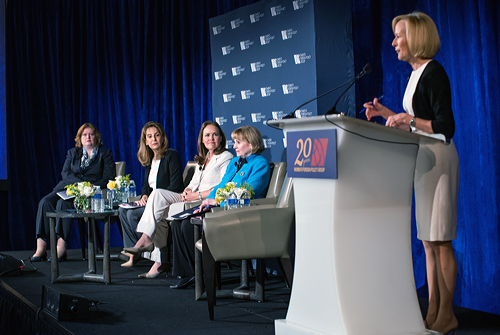 |
 |
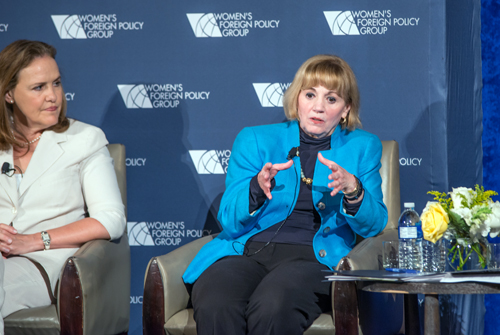 |
PBS NewsHour Co-Anchor and Managing Editor
Judy Woodruff introduces the panelists
|
|
Ambassador Anne Patterson, Assistant Secretary of
State for Near Eastern Affairs
|
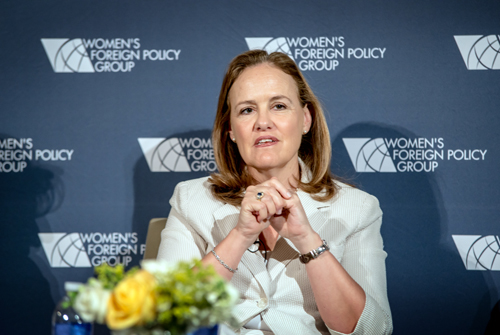 |
 |
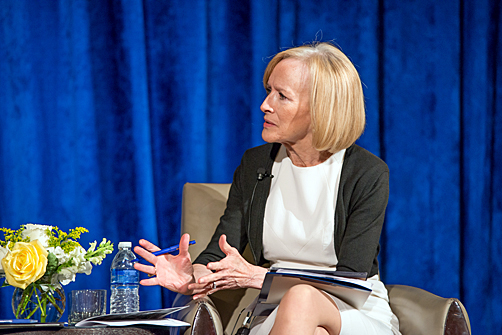 |
Michèle Flournoy, CEO,
Center for a New American Security
|
|
Judy Woodruff moderates the discussion
|
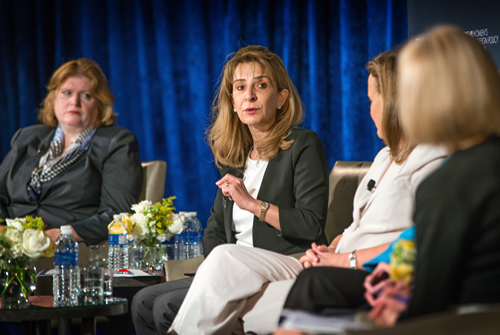 |
 |
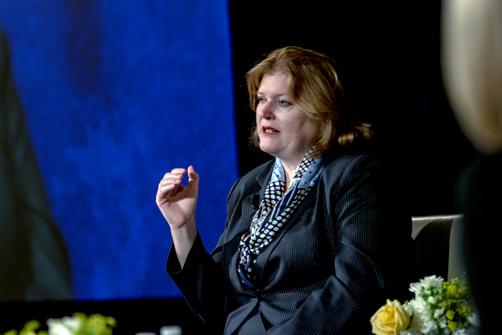 |
H.E. Dr. Alia Hatoug Bouran,
Ambassador of Jordan to the US
|
|
Anne Richard, Assistant Secretary of State for
Population, Refugees, and Migration
|
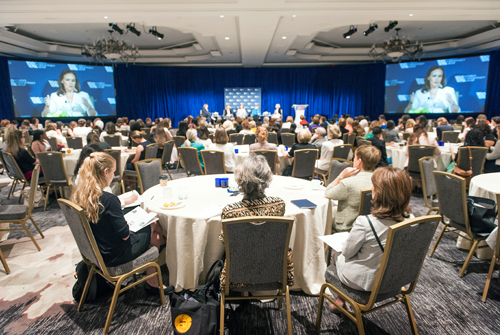 |
 |
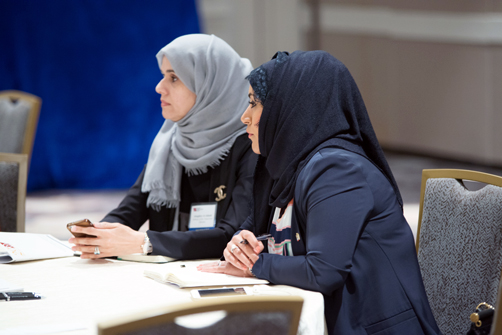 |
WFPG members and guests listen to panelists
|
|
Guests from the Embassy of the United Arab Emirates
|
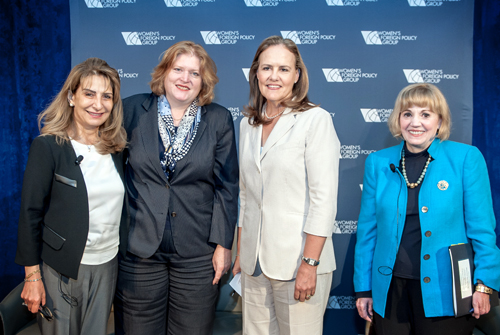 |
 |
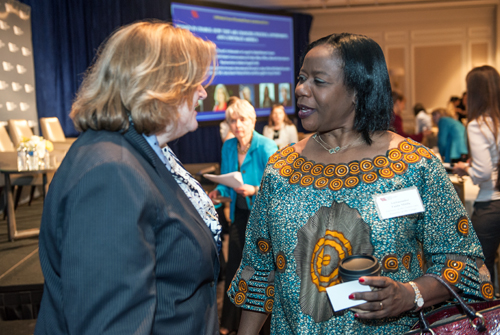 |
Ambassador Bouran, Assistant Secretary Richard,
Michèle Flournoy, and Assistant Secretary Patterson
|
|
Assistant Secretary Richard and Ambassador
Faida Mitifu of the Democratic Republic of the Congo
|
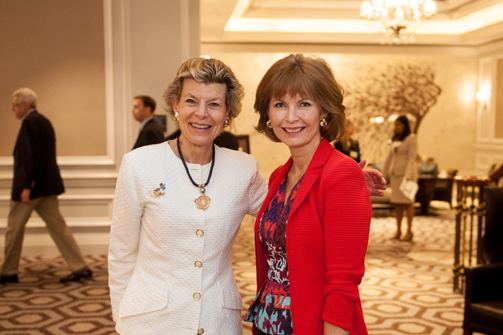 |
 |
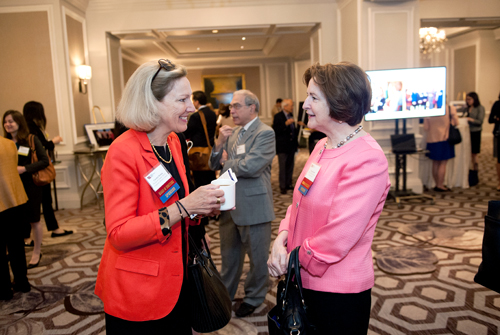 |
WFPG Board Members Diana Negroponte
of the Wilson Center and
Nancy Ziuzin Schlegel of Lockheed Martin
|
|
WFPG Board Members Carolyn Brehm of P&G and
Theresa Loar of CH2M
|
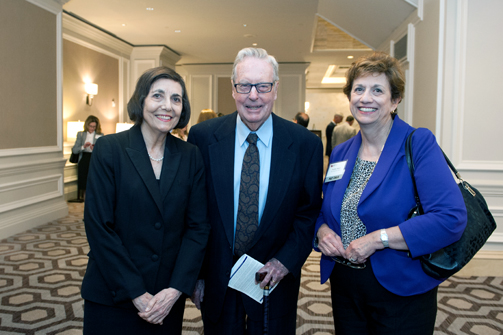 |
 |
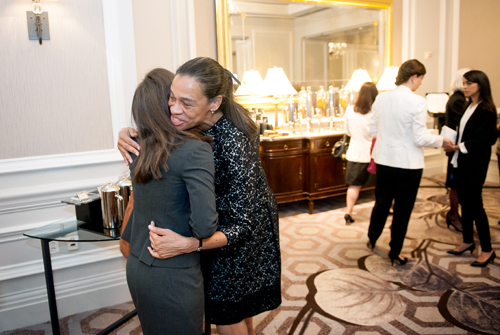 |
WFPG President Co-Founder Patricia Ellis, Tom Hughes
President Emeritus, Carnegie Endowment for
International Peace, and Former WFPG
Board Chair Pauline Baker
|
|
WFPG Board Vice Chair Gail Leftwich Kitch greets
former WFPG staff member Emily Ball now of
the Department of State
|
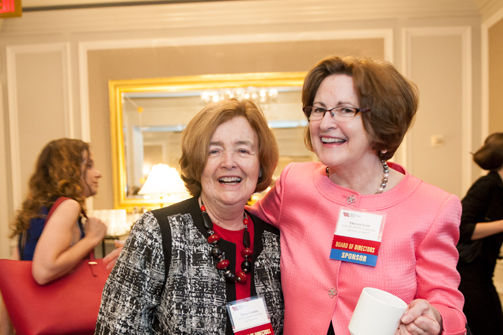 |
 |
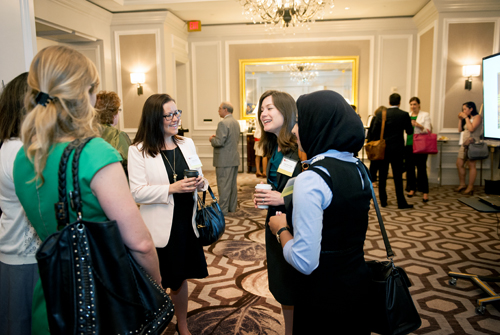 |
WFPG Board member and Anniversary Committee Chair
Dawn Calabia and Board Member Theresa Loar of CH2M
|
|
Future Leaders from the Department of State
|
|
|